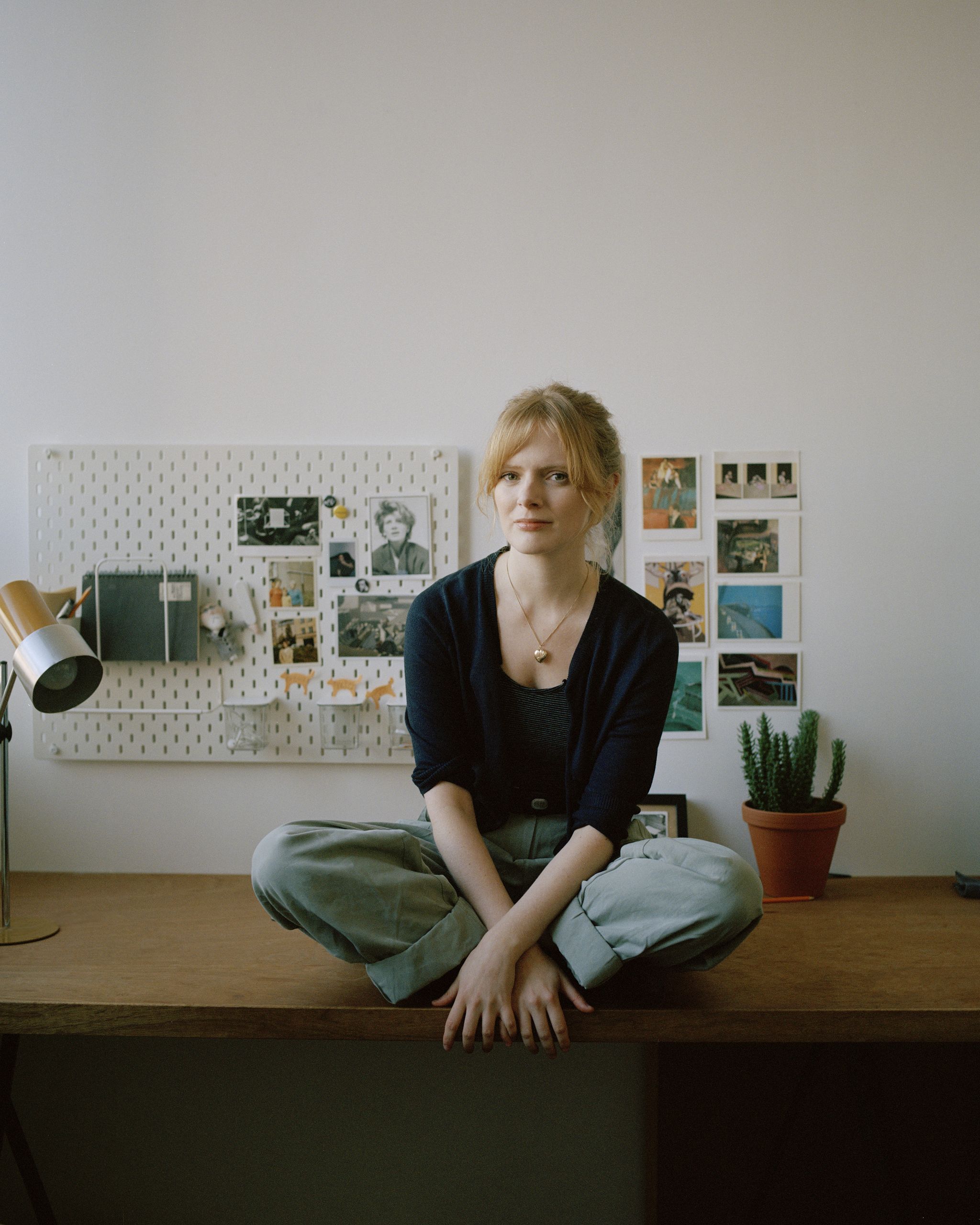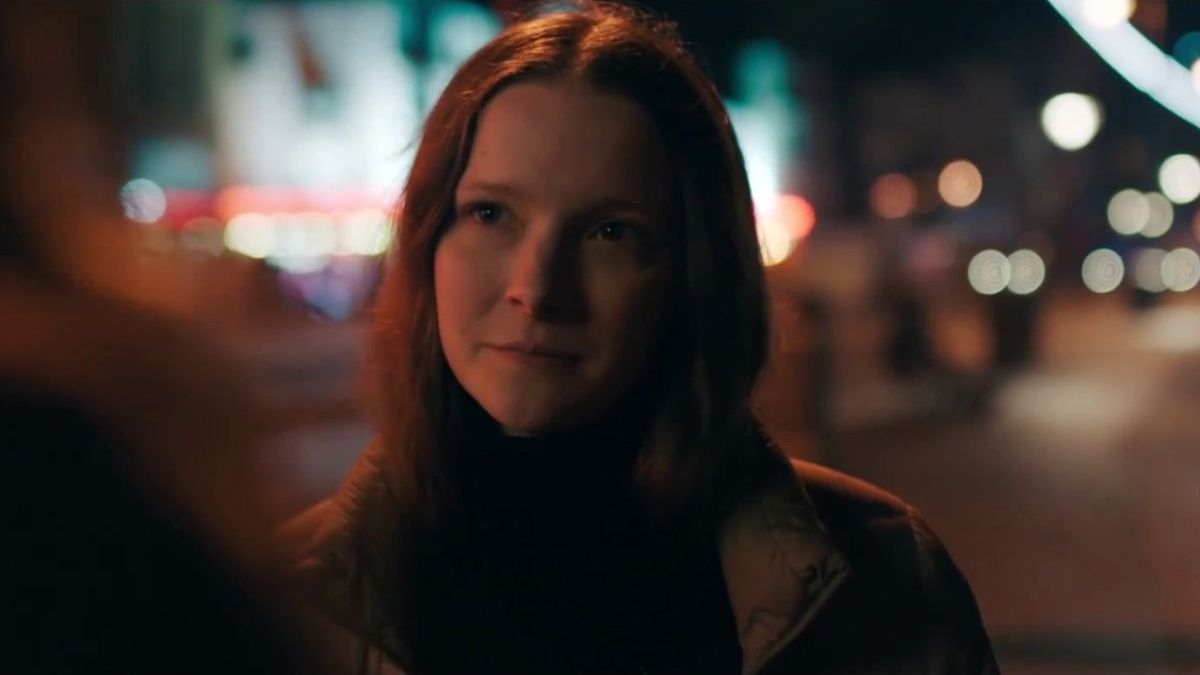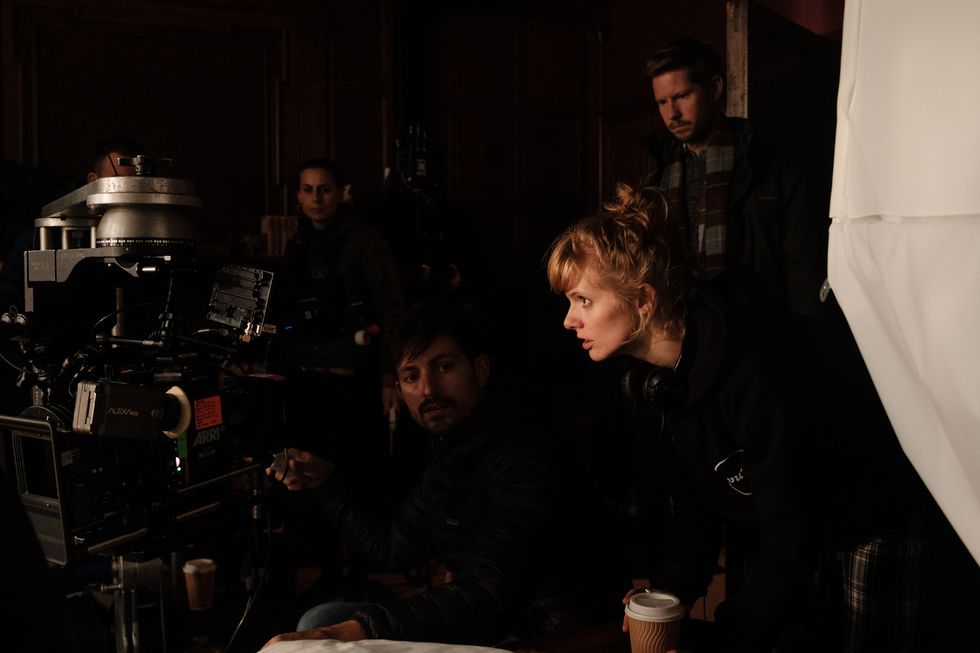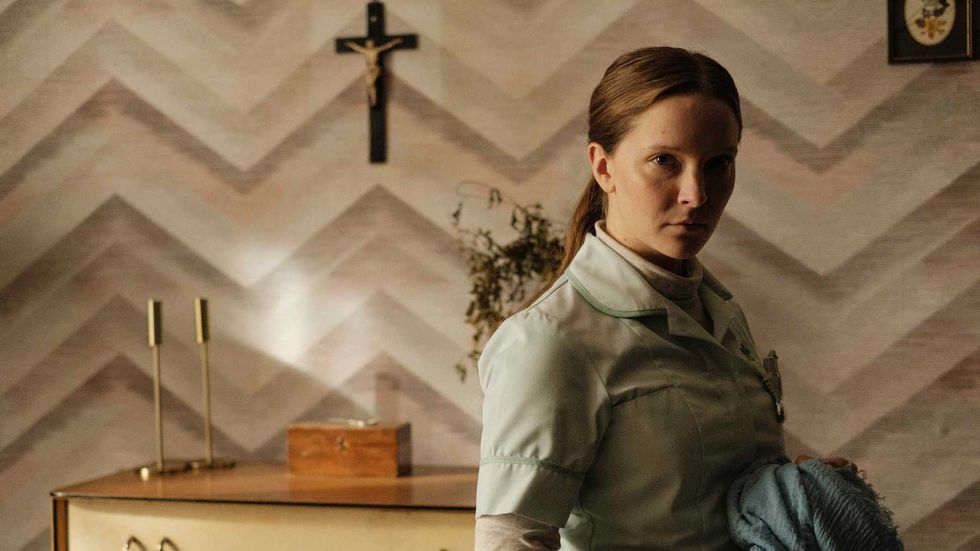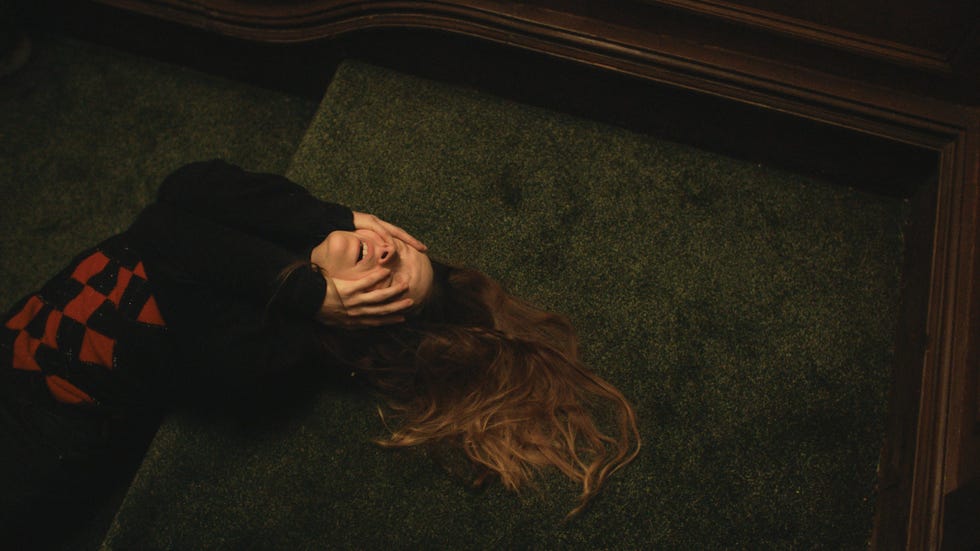When she was pitching the idea for her film Saint Maud, Rose Glass came up with an irresistible sell. “Try thinking of Maud as if Travis Bickle were a young Catholic woman living in an English seaside town,” she would say. It worked. The uncomfortable drama, which goes deep into a disturbed young girl’s mind, won its 30-year-old director a Film-maker Bursary Award at last year’s London Film Festival, and rave reviews when it premiered in Toronto last September. It is also the latest movie to confirm horror as the most exciting genre of independent film-making today.
Saint Maud’s titular martyr is a Catholic girl, played by Morfydd Clark, living in a seaside town and caring for Amanda (Jennifer Ehle) a retired dancer. Maud becomes fixated with saving the soul of her patient, and their relationship — at first eerie and sexual — soon sours. It’s a story that exists in parallel worlds: the fantasy inside Maud’s head and the reality she is floating above, though that reality sometimes comes crashing in to deliver, as Glass describes it, “a short sharp shock”.
“I was interested in people using their minds in confined spaces, the places you can go to when you’re disconnected from people around you,” Glass says, in her office space in Hackney, London. She wrote Saint Maud while working as a cinema usher, having graduated from The National Film and Television School.
Glass grew up in the Essex countryside, her cinematic imagination fired when her parents brought home a video camera. “I was a bit of a loner but I had a couple of friends and they were all into movies,” she says. After watching Shaun of the Dead she remembers trying to recreate a zombie-arm-bite by shoving bread soaked in fake blood up a friend’s shirt sleeve.
“Visceral” is perhaps the most overused word when discussing horror movies, but Saint Maud really is stomach-churning stuff. The film opens with a shot of baked beans bubbling like blister-ing skin to a nightmarish soundscape of ripping flesh, pills being dry swallowed and a ball point pen being clicked over and over again.
In another scene, Maud walks through the seaside town wearing cardboard insoles pierced with upturned pins as punishment for her sins, the idea for which came from a BDSM website Glass discovered. “I don’t think spiritual cleansing was what the person on that forum was going for,” she laughs. “But it’s interesting the different things that make people tick. Everyone’s weird but we walk around pretending to be normal.”
It is worth noting at this point that Glass comes across as normal, sunny and charming, despite her slightly unnerving habit, during our interview, of playing with a constellation of drawing pins, which she stabs into the arm of her chair, as well as the Post-it Notes on her walls proclaiming the words “Needle” and “Nurse”.
She cites Ingmar Bergman’s “faith trilogy” and Roman Polanski’s Rosemary’s Baby as tonal inspiration for Saint Maud, and the film gets further arthouse cred by the fact that it will be distributed in the US by A24, the buzzy studio whose stylised horror films have gained it a cult following.
Glass is wary of the widely used term “elevated horror”, saying it “sounds a bit snobby to me”. And she is unmoved by criticism of the film’s more shocking aspects, particularly its finale. She says she likes “films that people find offensive.”
“I’m curious about what makes people do things that on the surface seem inexplicable. I don’t think those things happen overnight,” says Glass. “I thought if I could get an audience to go on the same journey as the character then hopefully they’d understand. Someone asked how I want people to feel at the end. I said, ‘Guilty’.”
